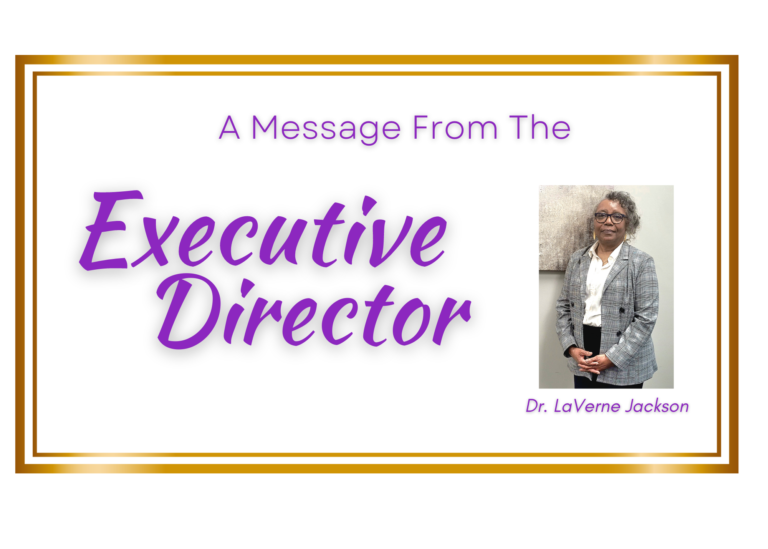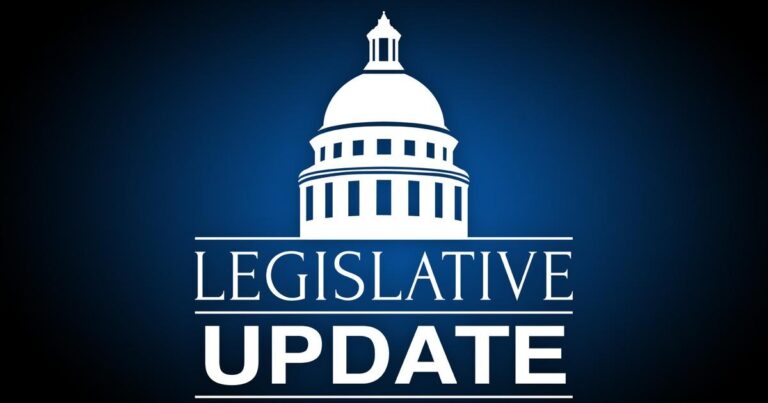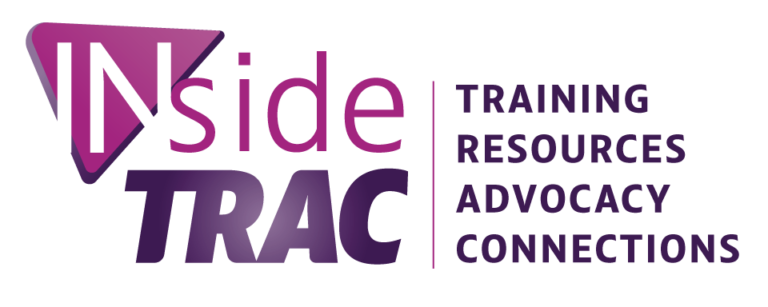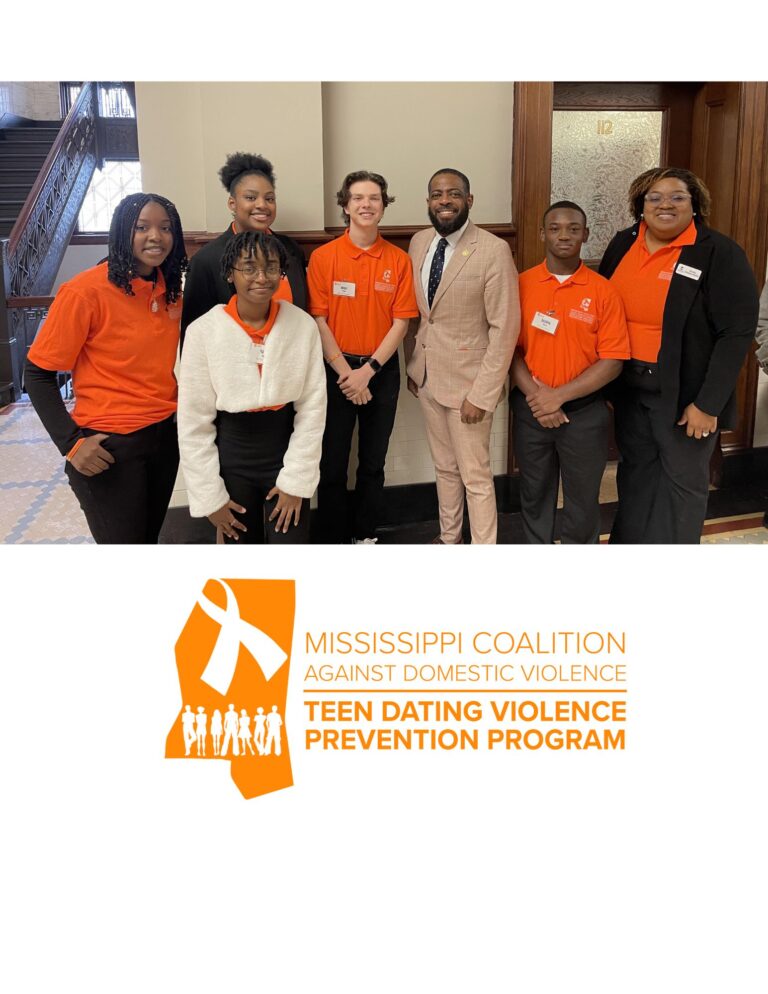
The domestic violence movement in Mississippi dates back four decades. We have made outstanding strides through prevention, education, and awareness within our communities. Mississippi’s laws protecting victims are among the best in our country. However, the incidence and prevalence of domestic violence and intimate partner violence in our state are alarming, continue to rise, and frequently garner national attention. The Mississippi Coalition Against Domestic Violence (MCADV) continues to raise awareness toward gaining momentum within our state to reduce the prevalence of domestic violence and its devastating effect on families in Mississippi.
As a Coalition, we collaborate with various groups and organizations to provide education and awareness. Social media and other media platforms allow us to spread the word beyond geographical boundaries. These are critical components of our awareness and outreach efforts. Getting the word out is vital, but education is even greater. MCADV educates service providers and advocates, equipping them with the necessary tools and resources to empower individuals to move from victims to survivors.
Systemic Advocacy is a crucial component that plays a significant role in supporting victims and those impacted by domestic violence. Recently, we made great strides in laying the groundwork to create a statewide fatality review process that would examine homicides related to domestic and intimate partner violence. Fatality Review processes mobilize key professional and community stakeholders to identify root causes leading up to a fatal event and develop comprehensive preventive strategies that will reduce fatal outcomes. House Bill 842 , which would have created a Fatality Review Board for the state of Mississippi, was not passed during this legislative session. However, MCADV made enormous progress in garnering support and raising awareness for the need of this important legislation.
At MCADV, our commitment is to unite people from multicultural communities, ensuring the safety and well-being of survivors, and working tirelessly to prevent tragic losses due to domestic violence. We take on the responsibility of being the leading agency in our state, offering essential domestic violence resources to support advocates, victims, and survivors. United, we strive to build an effective network where everyone feels supported and empowered to rise above challenges brought on by domestic violence.
Remember…… Together, we have the strength.

Addressing Entrepreneurship and Domestic Violence Challenges during COVID-19
During the pandemic, the role of caregiver exposed women to an increased risk of contracting COVID-19. Women comprise the larger portion of healthcare workers and were on the front line caring for patients. 72% of all COVID-19 cases among healthcare professionals were women. To curb the spread of the virus, women also spent more time at home during lockdowns. This proved to be a place which was unsafe for many. Violence against women increased to record levels. The National Domestic Violence Hotline received more than 74,000 calls, chats, and texts in February 2020, the highest monthly contact volume of its 25-year history. Calls to domestic violence hotlines shot up by 40% in some countries during these periods. In others, they dropped dramatically, indicating that women could have faced new barriers to seeking help.
However, amid turbulent times, many women turned the problems of the pandemic into profit and the issues of being at home into investment opportunities. Some of these business ventures were established out of hobbies or giftedness in a certain area or an opportunity to venture down a career path that they would not have thought possible before the pandemic.
One reason that women emerged out of the pandemic able to dream new dreams and walk down new paths is because of the financial assistant programs that were made available to small businesses and which particularly targeted women. According to a January 2024 Wells Fargo report, “It is an unprecedented time for women business owners. Women-owned businesses are not just growing in number, but growing faster than those of their male counterparts, too. Even with COVID-19 challenges, women are increasingly taking the leap into running their own business, and the economy is changing as a result. The pandemic years saw huge investments in support for small businesses, which is one reason more women entrepreneurs are starting or growing businesses. Especially throughout the Paycheck Protection Program (PPP), banks and community development financial institutions (CDFIs) helped entrepreneurs — women and minority business owners, in particular — through tough times. Often, CDFIs, which received an unprecedented level of philanthropic funds, offered these businesses flexible capital, grants, and loan aid.”
The wonderful thing about this level of support is that women-owned businesses were not left out of the financial loop as has been the case in the past. Through many of these programs, women were given the opportunity to not merely survive during this time but to thrive. The businesses birthed from the COVID-19 pandemic are burgeoning and a driving force in our economy today.

2024 Legislative Updates
As we approach the conclusion of the 2024 Legislative Session, we’ve observed lawmakers proposing bills aimed at enhancing support for families, expanding Medicaid coverage, and creating a board to review domestic violence-related fatalities.
Establishing a domestic violence fatality review board would greatly benefit Mississippi, and it is a cause MCADV has passionately championed. With this board in place, we could effectively identify domestic violence-related homicides and suicides. More importantly, this data could be used to present effective changes in prevention and intervention strategies, saving lives in the future. Unfortunately, the effort to establish a domestic violence fatality review board, known as House Bill 842, did not progress beyond the committee stage during the legislative session.
For survivors of domestic violence, access to healthcare through Medicaid can be a lifeline. It can provide crucial support for physical injuries, mental health services, and other medical needs resulting from abuse. By addressing the unique healthcare needs of survivors, Medicaid contributes to their safety, well-being, and journey towards healing and independence.
MCADV has been actively pushing for an increase in state funding to support our domestic violence shelter programs. This additional funding would serve as a crucial supplement to offset the cuts made to the Victims of Crime Act (VOCA) over the past four years. State funding plays a vital role in sustaining domestic violence shelters and ensuring that survivors have access to the resources and support they need to escape abuse. Currently this proposal is under discussion as part of the deliberations for the state’s Annual Budget.
As the primary state organization addressing domestic violence, we acknowledge that domestic violence isn’t solely an individual problem but is deeply rooted in societal norms and power dynamics. At the policy and legislative level, we advocate for laws and regulations that prioritize the safety and well-being of survivors, hold perpetrators accountable, and allocate resources for prevention and support services. By advocating for systemic change, our goal is to create communities that are more supportive of survivors and more committed to creating a culture of respect, equality, and safety.

MCADV invites you to join the INside TRAC!
Joining the INside TRAC connects you to a community with a shared mission of combating domestic violence. Don’t miss out on this chance to be a part of a movement for change! Click the buttons below to access more information and your INside TRAC application!

Teen Summit 2024 – Love Like That
On January 27th, our teens celebrated “A Love Like That” during the 2024 Teen Summit. It was one of our most interactive summits to date, engaging participants in various activities and discussions.
In alignment with the National Theme, the Teen Council opted for “Love Like That” by Hulvey as their theme song, finding it directly echoing with the overarching theme. The lyrics, such as “I can’t love like that, Talkin’ behind your back, Told me to love on you, How you gon’ hate on that?” reiterated the emotions of the theme. This song, along with the chosen theme, established the tone for the Teen Summit. Speakers also appreciated this song, understanding the vision the Teen Council aimed to convey.
Presenters Vera Jordan and Kysia Owens addressed Suicide Prevention by organizing impactful activities for the teens. Many teens openly discussed how suicide had directly impacted them or someone close to them in their community. One vendor even shared her emotional experience from her teenage years of feeling isolated and having no one to turn to for help. The supportive atmosphere encouraged her to share.
Mikaevonn Mills delved into the topic of Love Like That, emphasizing the importance of self-love before loving others. Some teens shared personal experiences where lacking self-love had affected their relationships and friendships.
Di’Marco Baskin discussed themes within his presentation entitled “Believe in Yourself – How to Guard Yourself from Encountering Low Self-Esteem and Changing Our Mental Real Estate.” The teens found his energetic presentation engaging, and Mr. Baskin incorporated memorable chants to reinforce his message.
Rhonda Clark addressed parents on the topic of child abuse and neglect, discussing its impact on the family unit. She provided parents with red flags to look out for and healthy ways to respond to stress.
During the lunch break, teens enjoyed their meals and danced to music from DJ Lil’Walt. The DJ fulfilled every request, keeping the dance floor lively.
Feedback from participants was overwhelmingly positive. One teen expressed how the Teen Summit helped put things in perspective regarding their unhealthy relationship. Another requested future invitations, highlighting the event’s fun nature and desire for similar gatherings in their hometown. One teen credited the summit with helping them find their voice. Lastly, a parent expressed gratitude, stating that their daughter felt comfortable sharing something she had been holding onto, and they received comfort in the Zen Room.
The Teen Council expressed their enjoyment in connecting with other teens and fostering a sense of community. One member remarked, “We’re not alone. We feel supported.”

Teen Advocacy Day at the State Capitol
MCADV’s Teen Advisory Council participated in Teen Advocacy Day at the State Capitol on February 29, 2024. During this event, council members had the opportunity to engage in a private meeting with several legislators. Among them were members of both the Senate and the House, who provided insights into the legislative process of how a bill evolves into law.
During the meeting, the Teen Council voiced their perspectives on the significance of House Bill 252 which would require school districts to adopt a policy and educate students on Dating Violence. Nadia Davis, a member of the Teen Council, highlighted concerns about teen dating violence, pointing out specific red flags. Another council member, Rhys Evans, emphasized the importance of House Bill 252 in offering hope to teens for increased safety within school environments, preventing perpetrators from re-victimizing teenage victims.
Teen Council member Alyscia Stubbs pointed out the lack of serious consequences for teen batterers when they harm their victims. She noted that often, these perpetrators face only a short suspension from school, allowing them to return and continue their harmful behavior. Members of both the House and the Senate were astonished by this revelation and offered the Teen Council various avenues to initiate action.
Following this meeting, the Teen Advisory Council participated in the Legislative Luncheon, where they had the opportunity to engage with different members of the House and Senate. They asked questions related to both political matters and issues close to their hearts, seeking insights that could aid them in advocating for bills to become law.
In a final recognition of their efforts, the Teen Advisory Council was acknowledged in both the Senate and the House of Representatives for their courageous work in combatting teen dating violence. Their dedication earned them a standing ovation from the legislators.
